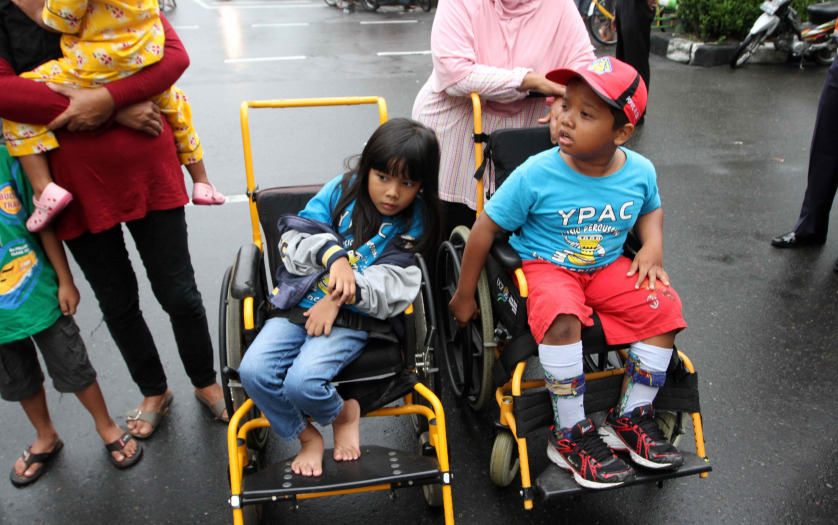
Children with disabilities in Indonesia confront notable challenges across crucial aspects of their well-being, spanning education, health, and social inclusion. This comprehensive examination, unveiled today by UNICEF and BAPPENAS, marks the first in-depth analysis of children with disabilities in the country, shedding light on the pressing issues they encounter.
Titled “Landscape Analysis of Children with Disabilities in Indonesia,” the report developed in collaboration with SMERU Research Institute, reveals children with disabilities face challenges in various aspects of their lives.
In the education sector, even though the number of inclusive schools increased by 29 per cent from 2020 to 2021, children with disabilities still have a lower chance of attending school and completing their education compared to their peers without disabilities. As many as 36 per cent of children with disabilities do not attend school, while only 8 per cent of children without disabilities face the same situation.
The report also highlights health concerns. Children with disabilities are almost twice as likely to experience stunting, malnutrition, or undernutrition, compared to children without disabilities. Girls with disabilities are more likely to be affected than boys.
“Every child, regardless of ability, deserves an equal opportunity to thrive. Yet, children with disabilities continue to face distinct disadvantages in all childhood development aspects,” said Maniza Zaman, UNICEF Indonesia Representative. “We must recognize and remedy these challenges for Indonesia to be truly inclusive and to harness the limitless potential of every child.”
The report also highlights that children with disabilities have higher rates of acute respiratory infections and diarrhea – which are leading causes of diseases and death for children. While there has been an increase in immunization coverage among children with disabilities from 47 per cent in 2019 to 62 per cent in 2021, their rate of vaccination is still lower than children without disabilities, particularly for those living in poverty.
The number of children with disabilities who reported having faced violence decreased by a third from 2019 to 2021, but more disclosed that they suffer sexual abuse than other forms of violence. Twice as many reported these violations compared to physical abuse, and three times as many compared to emotional abuse.
“The government prioritizes the basic rights of all children, including those with disabilities. The National Action Plan for People with Disabilities implements initiatives to create an inclusive environment and enhance the quality of life and welfare for children with disabilities. These efforts cover various aspects, from ensuring the comprehensive registration of children with disabilities to guaranteeing access to inclusive schools, affordable and complete healthcare services, optimized infrastructure support in public facilities, and the active elimination of discrimination and stigma against children with disabilities. Additionally, the plan provides fair legal assistance and aims to achieve nutritional empowerment in accordance with established standards to reduce the prevalence of stunting and other malnutrition conditions,” stated Maliki, Deputy for Population and Employment at the Ministry of National Development Planning (Bappenas), at the opening session of the Second 2023 Disability Art Festival, during which the new report was released.
Protecting children and realizing their rights is a shared responsibility. The report highlights the importance of collaborative efforts among ministries, institutions, and communities as the cornerstone for effectively implementing policies that safeguard the well-being of children with disabilities.
The report outlines several recommendations to improve the well-being and inclusion of children with disabilities, including:
- Strengthen coordination across all government levels to improve the implementation of relevant policies.
- Assess how the inclusive education system can better serve children with disabilities and improve educator training to include inclusive teaching practices, understanding of disabilities and effective use of assistive technologies.
- Develop specialized nutrition programmes focused on the unique needs of children with disabilities, with a particular emphasis on girls.
- Establish standards for the provision of quality health services for children with disabilities.
- Strengthen child protection systems to better prevent and respond to violence against children with disabilities.
